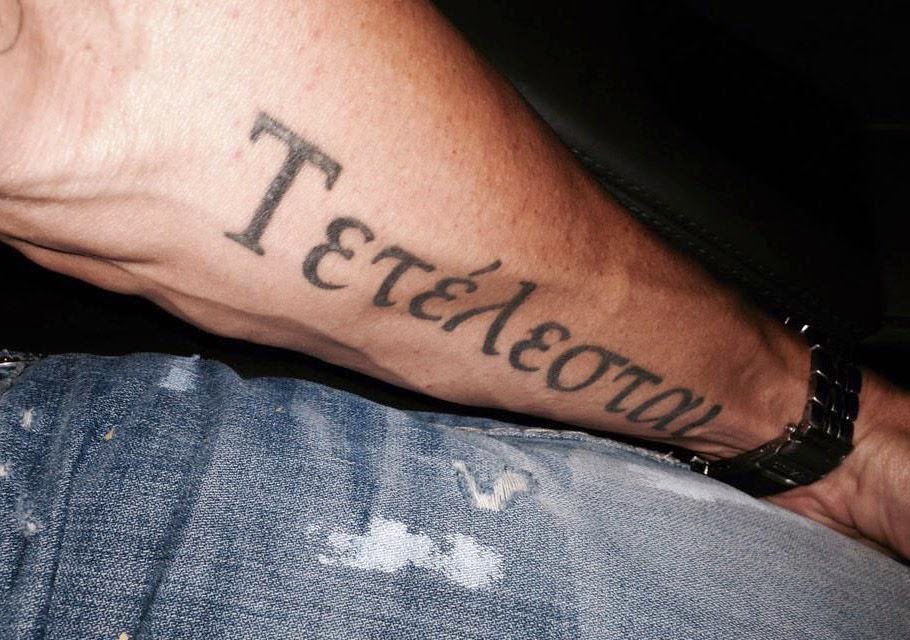They are the last words of Jesus from the cross—the words He died by: “It is finished” (Tetelestai in Greek). And for Tullian Tchividjian, pastor and author and sinner, they are the words to live by. Not to mention the equivalent recently tattooed on his arm. With that statement, Jesus pronounced His atonement for the sin of the world and His accomplishment of the work of salvation that is ours to claim by grace, through faith.
“Lots of people talk about justification by grace alone through faith alone in the finished work of Christ alone. But then it’s almost as if that glorious doctrine remains in our past,” Tullian says as he recounts the difficult personal journey that brought him to rediscover the “now” of the gospel.
“I had always believed the gospel is the good news that we are saved from the past, and the gospel is the good news that we will be saved in the future. But what I had failed to grasp at an experiential level is that the gospel also saves us in the present.”
“I have a friend named John Zahl who says, ‘God’s office is at the end of our rope.’ I experienced that firsthand, and my whole life changed. My understanding of Christianity in many ways changed … and what it actually means as we make our way through the grind of life is that God loves us unconditionally—and that Jesus paid it all—and that we live our lives under a banner that says, ‘It is finished.’”
The turning point awakened a new zeal in him for an old message of radical, generous, inexhaustible grace. Think Martin Luther and the Protestant Reformation. Tullian asserts it’s time for another—and he’s on a mission to bring the message of sola gratia, grace alone, to a church laboring under the burden of performance-based Christianity.
Beautiful, Painful Liberation
For all his earnestness about church history and theology, Tullian speaks with energetic ease and wry humor. He even jokes that sarcasm is his family’s love language. And then there’s explaining for the umpteenth time how to pronounce his last name: Cha-vi-jin, which rhymes with religion. Even going by first name only—like Usher or Bono or Elvis—would not be easy because people mispronounce that too. It’s TUH-llian.
Yet underneath the jesting swells the powerful, grace-charged liberation of a man unmasked of pride in his identity and reputation. Now forty-two, he’s been candid about the rough-and-tumble behavior that got him kicked out of the house at sixteen and about his return to faith at twenty-one. But it was a series of unfortunate and exposing events in his adult life—as a pastor no less—that brought him to the painful realization he describes as “the best thing that ever happened to me” because it helped him realize what it really means to live an “It is finished” faith.
The realization began to dawn when his parents divorced ten years ago and Tullian was forced to confront the self-confidence he had always staked in his family name: “I was a Tchividjian. My parents were well established in the community, my mother as a nationally renowned speaker and author, the daughter of Billy Graham, my father was the sophisticated European psychologist.”
“I had put my parents up on a pedestal … and as long as I was their son, I told myself, I was someone. So when they announced their separation, it threw me.… I had to go back and reinterpret my entire life. It was painful.” But, he says, “Our response to suffering reveals what we’re building our life on and what we’re depending on to make life worth living.”
“The grief of my parents’ divorce brought me to my knees, and put me in touch with my need for God in a way that nothing else could have at that moment. Grace always runs downhill, meeting us at the bottom, not the top.”
More at the link.

No comments:
Post a Comment